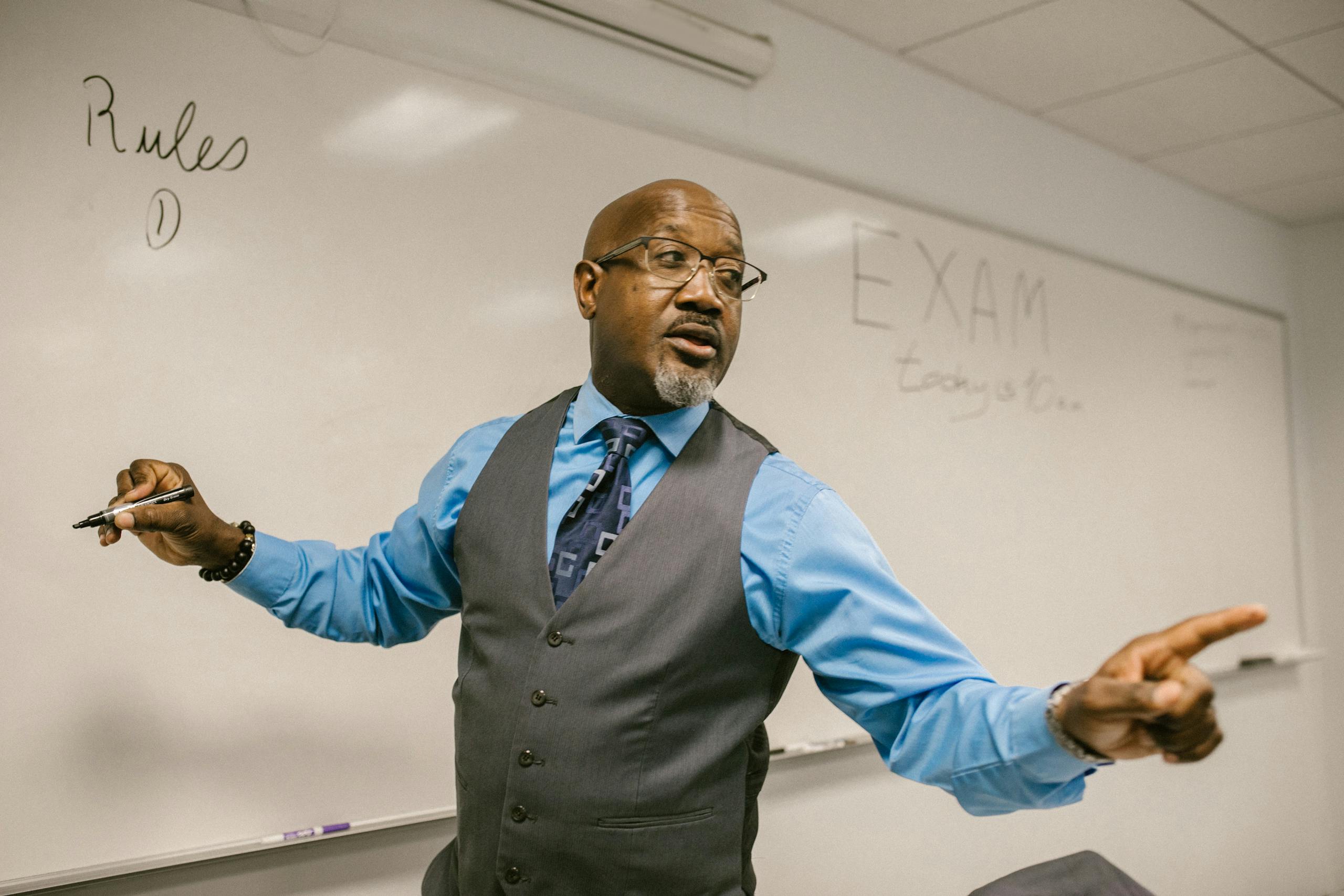Tips, tricks, and strategies to help you teach more effectively and efficiently.

Courtesy of RDNE Stock project
One of the issues that you may have to deal with when teaching an online class is attempting to prevent students from cheating on quizzes and exams. While complete prevention cannot be guaranteed, there are things you can do to mitigate students from cheating online.
A colleague of mine contacted me for advice because he suspected that his online students were cheating on his quizzes and exams. He noticed that a lot of the students were earning high grades on his online assessments. It was as though they had access to the answer key to his exams. My colleague wanted to know if there was an online tool that could help with the cheating problem.
(more…)
This is the third in a series of articles to help you prepare for the teaching job interview. In the last two articles, I discussed how you can prepare for the Writing Assignment At Teaching Job Interview and how to Prepare For A Teaching Interview.
In this article, I’ll share four things to help you prepare for the teaching demonstration.
Teaching Demonstration
Most applicants applying for a teaching position seem have some teaching experience either as a Teaching Assistant (TA) in graduate school, or as an adjunct faculty, or as a trainer in the industry they’ve specialized in. If you happen to be one of those, you’re fortunate enough to have some classroom or instructional experience.
(more…)
In a previous article titled Preparing For A Teaching Interview, I discussed six things you can do to prepare for an interview. However, the interview itself is only one aspect of the hiring process at many colleges and universities.
Hiring committees for a full-time teaching position often require candidates to also complete a written assignment and a teaching demonstration. At my college, we require candidates to do the writing assignment, job interview, and teaching demonstration on the same day. In some disciplines, candidates may also be required to perform a skills demonstration. In this article, I will discuss the writing assignment.
(more…)
So you’ve decided to teach! You’ve turned in your application, some secret group mulled over your application, CV, reference letters and decided to invite you for an interview.
Congratulations!
You are one step closer to becoming a professor, but don’t begin celebrating just yet. You still have some homework, lots of preparation, and a hiring committee to impress in person. In this article, I’ll share a few tips to help you better prepare for your teaching interview.
(more…)
I’d like to dedicate this particular post to a former student of mine, Tracey Anderson, who left a comment with a question on episode 10 of the FacultyWorkshop Podcast. The title of that episode was “Setting The Bar: How High Should Your Expectations Be?”
Tracey is currently finishing up her masters degree in Leadership and Management, and is planning on continuing her education and earning a PhD in Organizational Leadership and Management. Tracey has been through a lot of challenges thought-out her life, but she has always maintained high standards for herself and persisted in achieving her goals. Over the years she’s learned a lot and gained some valuable experiences. She also has a passion for wanting to help others, which is why Tracey would like to teach a class on leadership and motivation to students, to help them discover their full potential. However, she’s not sure how to get to that point or where to start.
(more…)
I was blessed and fortunate enough to have attended an exclusive small private college in Switzerland on a full-academic scholarship. Most of the students who attended came from privileged backgrounds. Many were high-performing students, which was probably a good thing because this college was no walk in the park. This was one of the top five Hotel Management schools in Switzerland at the time. Academic standards and performance expectations were extremely high. This was a school that had rules and expectations for everything in and out of the classroom. It was more like an elite military academy than a college.
(more…)
As a the head of the hospitality management program at my college, I get contacted by various community organizations, profit and non-profit, looking for students to volunteer for a number of things ranging for being ushers at a major international event like the Breeders Cup World Championships to being Food Safety Advisors at the International Festival at the Claremont Colleges.
As exciting as these opportunities are for me to share with my students, I need to bear in mind that many students are not immediately aware of the benefits of volunteering. Many of my students are commuter students, some have jobs, some are parents and all of them seem to have little to no time to serve the community and volunteer in anyway. Or do they?
(more…)
Ever wonder why so many students hate group work? If you were like most students in college, the thought of group work was something you did not look forward to either. Why? Well, there are a number of reasons.
Being in a group meant:
- making concessions and giving up control of a portion of a project or assignment
- having the performance of other students in the group affect your grade
- being possibly stuck with one or more losers who never do any work and still end up with the same grade as everyone else in the group
- having to rearrange your schedule to accommodate the availability of others in the group
(more…)
So you’ve assigned your first group project and thoroughly explained the requirements to your students and you now want to make sure that your students are productive and efficient. Fortunately, there are a few things that you can do to facilitate the interaction and progress of each group.
1. Raise The Bar
Before assigning the groups, it’s important to set the tone for the quality of work you expect from students. Raise the bar high, and your students will meet it and possibly exceed it. Set the bar too low, and you’ll be disappointed with the quality of your students’ work, and they’ll never really know what they are truly capable of achieving. Never make the mistake of assuming that a student’s socio-economic background, age, or cultural background will prevent them from achieving spectacular results if they are properly trained and prepared by you.
(more…)









